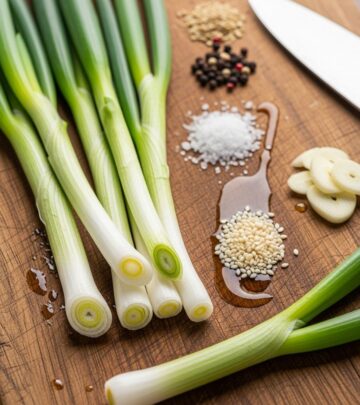Red Grapes: 14 Impressive Benefits for Skin, Hair, and Health
A delicious way to nourish your body and boost natural beauty from the inside out.

Red grapes, often recognized for their tantalizing sweetness, hold far more value than just their flavor. This nutrient-rich fruit offers remarkable benefits, powering up your skin, strengthening your hair, and supporting vital aspects of overall wellness. Explore the science-backed advantages of red grapes beneath their vibrant skin.
Table of Contents
- Red Grapes Nutritional Profile
- Top 14 Benefits of Red Grapes
- Red Grapes for Skin
- Red Grapes for Hair
- How to Use Red Grapes
- Possible Side Effects
- Frequently Asked Questions
Red Grapes Nutritional Profile
Red grapes come packed with powerful nutrients:
- Antioxidants: High in polyphenols such as resveratrol, quercetin, and flavonoids.
- Vitamins: Rich in vitamin C, vitamin K, and vitamin E.
- Minerals: Potassium, copper, iron, and magnesium.
- Dietary Fiber: Supports digestive health and fullness.
- Natural Sugars: Sourced from glucose and fructose, providing quick energy.
These components make red grapes a superfood for daily consumption, benefiting various functions in the body and mind.
Top 14 Science-Backed Benefits of Red Grapes
1. Anti-Aging Properties
Red grapes’ skin and seeds contain abundant resveratrol, a potent antioxidant proven to slow signs of aging. Resveratrol helps neutralize free radicals, preserving skin elasticity, and reducing wrinkles, keeping your complexion youthful and radiant.
2. Antibacterial and Antiviral Activity
Red grapes harbor natural antibacterial and antiviral compounds, aiding your body in fighting off infections. Notably, they can combat pathogens such as the polio and herpes simplex viruses, and support overall immune function.
3. Boosts Skin Health
High levels of vitamin C and polyphenols in grapes protect your skin from pollutant and toxin damage. These nutrients are crucial for collagen repair, leading to firmer, healthier, and more radiant skin.
4. Prevents Kidney Disorders
Red grapes help reduce uric acid and facilitate its elimination from the body, minimizing the kidneys’ workload. This can reduce the risk of kidney disorders and foster renal health.
5. Manages Alzheimer’s Disease
Resveratrol, also found in red wine, is being researched for its potential to treat Alzheimer’s disease. It combats neurodegenerative processes and supports healthy brain function.
6. Promotes Heart Health
Antioxidants and polyphenols present in red grapes help lower cholesterol, support artery flexibility, and regulate blood pressure, effectively reducing the risk of heart disease. Regular grape consumption promotes circulatory system health and inhibits plaque formation in arteries.
7. Fights Cancerous Cells
Polyphenols such as resveratrol have shown anti-cancer properties, potentially helping fight certain cancers by preventing the growth of tumor cells and protecting DNA from damage.
8. Supports Bone Strength
With a mix of minerals like calcium, magnesium, and copper, red grapes promote bone density and strength, and may lower the risk of osteoporosis as you age.
9. Prevents Eye Diseases
Red grapes contain lutein and zeaxanthin, antioxidants that protect the retina and slow age-related macular degeneration, fostering long-term eye health.
10. Manages Blood Sugar
Despite their natural sugar content, red grapes have a low glycemic index and fiber, supporting healthy blood sugar levels and making them suitable for diabetics when enjoyed in moderation.
11. Weight Management
The fiber and water in grapes contribute to satiety, helping curb hunger and promote healthy weight. Their antioxidant profile also supports metabolism function.
12. Improves Digestive Health
Diets rich in grapes enhance digestion by providing substantial fiber. Polyphenols help maintain a healthy gut microbial balance, reducing inflammation and supporting overall gastrointestinal function.
13. Enhances Energy
Natural sugars and vital nutrients equip red grapes to deliver rapid energy, making them an exceptional pre-workout snack and aiding quick recovery from fatigue.
14. Boosts Immune System
Vitamins C and E, alongside antioxidants, empower the immune system, helping your body ward off illnesses and recover faster from infections.
Red Grapes for Skin
Red grapes offer transformative effects on skin health when consumed or applied topically.
- Hydration & Moisturization: Their high water content deeply hydrates, refreshes, and plumps the skin, whether eaten or used in masks.
- Anti-Aging: Antioxidants especially resveratrol help fight wrinkles and fine lines by reducing oxidative stress and boosting cellular renewal.
- Brightens Complexion: Vitamin C fades dark spots and develops a more radiant skin tone.
- Anti-Acne & Anti-Inflammatory: Lauric acid and resveratrol reduce redness, inflammation, and acne. Red grapes provide gentle antibacterial activity, ideal for acne-prone skin.
- Protection from UV Damage: Polyphenols shield your skin from UV irradiation and help repair sun-related cell damage.
Include red grapes in your diet to boost collagen levels, detoxify, and protect against daily environmental stressors.
How to Use Red Grapes for Skin
- Face Wash: Crush fresh grapes and apply the pulp to your face. Rinse for instant hydration and glow.
- Exfoliation: Blend grapes into a paste and mix with sugar to create a gentle face scrub for soft, refreshed skin.
- Dietary Addition: Enjoy grapes as a snack or in smoothies to nourish skin from within.
Green Grapes vs. Red Grapes: Which is Better for Skin?
| Red Grapes | Green Grapes |
|---|---|
| Best for anti-aging and sun protection | Best for detoxifying and skin lightening |
| High in resveratrol | High in Vitamin C |
| Protects against UV damage | Smoothens and brightens complexion |
For a balanced approach, enjoy both varieties as part of your beauty regimen.
Red Grapes for Hair
Red grapes deliver essential nutrients that rejuvenate hair from within.
- Promotes Hair Growth: Contains proanthocyanidins that stimulate follicles, boosting growth and reducing hair loss.
- Strengthens Hair: Vitamins C, E, and minerals fortify strands, reducing breakage and split ends.
- Improves Scalp Health: Antioxidants soothe the scalp, reduce dandruff, and provide a healthier base for hair growth.
- Enhances Texture: Regular consumption means smoother, more manageable hair with enduring thickness.
- Prevents Premature Graying: Active phytonutrients may help delay early onset of gray hair by safeguarding follicles.
How to Use Red Grapes for Skin & Hair
To maximize the advantages, try these approaches:
- Eat red grapes fresh as a daily snack or add to salads and smoothies.
- Apply grape pulp or juice topically as a face mask or scalp treatment.
- Use natural grape seed oil for massages on skin and hair roots.
- Drink fresh grape juice — avoid varieties with added sugars.
Possible Side Effects of Red Grapes
Red grapes are safe for most people; however, consider these issues:
- Overconsumption may cause stomach upset and diarrhea due to fiber.
- Be mindful of grape allergies; signs include itching, swelling, or difficulty breathing.
- Keep portion sizes moderate for diabetics as grapes contain natural sugars.
- Avoid excessive processed grape products with added sugars.
Frequently Asked Questions (FAQs)
1. How do red grapes benefit skin?
Red grapes hydrate, fight signs of aging, brighten skin tone, and shield against environmental damage thanks to vitamin C and resveratrol.
2. Can I apply red grape pulp to my face and scalp?
Yes. Grape pulp or juice can be used as a hydrating face mask or scalp treatment to enhance glow and soothe irritation.
3. Do red grapes help reduce acne?
Yes. Their antibacterial and anti-inflammatory compounds help fight acne, calm redness, and reduce skin breakouts.
4. Which is better for skin: red or green grapes?
Red grapes excel at anti-aging and UV protection; green grapes are ideal for detoxifying and brightening skin. For best results, include both.
5. Can red grapes support hair growth?
Absolutely. Nutrients like proanthocyanidins and vitamin E in red grapes stimulate follicles and keep hair stronger for longer.
6. Are there any risks in eating red grapes daily?
Red grapes are safe for most people. Stick to moderate portions, especially if diabetic or prone to allergies, and avoid high-sugar grape products.
Conclusion
Red grapes are more than a delicious treat; they are genuine nutritional powerhouses. Integrating them into your diet improves skin radiance, rejuvenates hair, supports vital organs, and shields your body from oxidative stress and chronic conditions. For optimal benefits, enjoy both red and green varieties regularly — through your meals, snacks, or natural beauty treatments — and experience youthful skin, stronger hair, and vibrant health.
References
- https://www.hkvitals.com/blog/benefits-of-grapes-a-look-into-its-nutritional-profile/
- https://kayakalpherbals.com/blogs/kumlsumsecrets/benefits-of-grapes-on-skin
- https://www.stylecraze.com/articles/benefits-of-red-grapes-for-skin-hair-and-health/
- https://www.herbaldynamicsbeauty.com/blogs/herbal-dynamics-beauty/20-major-health-beauty-benefits-of-grapes-best-of-all-bright-beautiful-skin
- https://jasminevineyards.com/recipes/6-ways-grapes-benefit-your-body/
- https://signaturederm.com/2021/04/28/six-delish-foods-for-healthy-skin/
- https://health.clevelandclinic.org/health-benefits-of-grapes
- https://purolabs.com/blogs/wellness-hub/5-foods-to-boost-hair-growth
- https://pmc.ncbi.nlm.nih.gov/articles/PMC3060966/
Read full bio of medha deb












